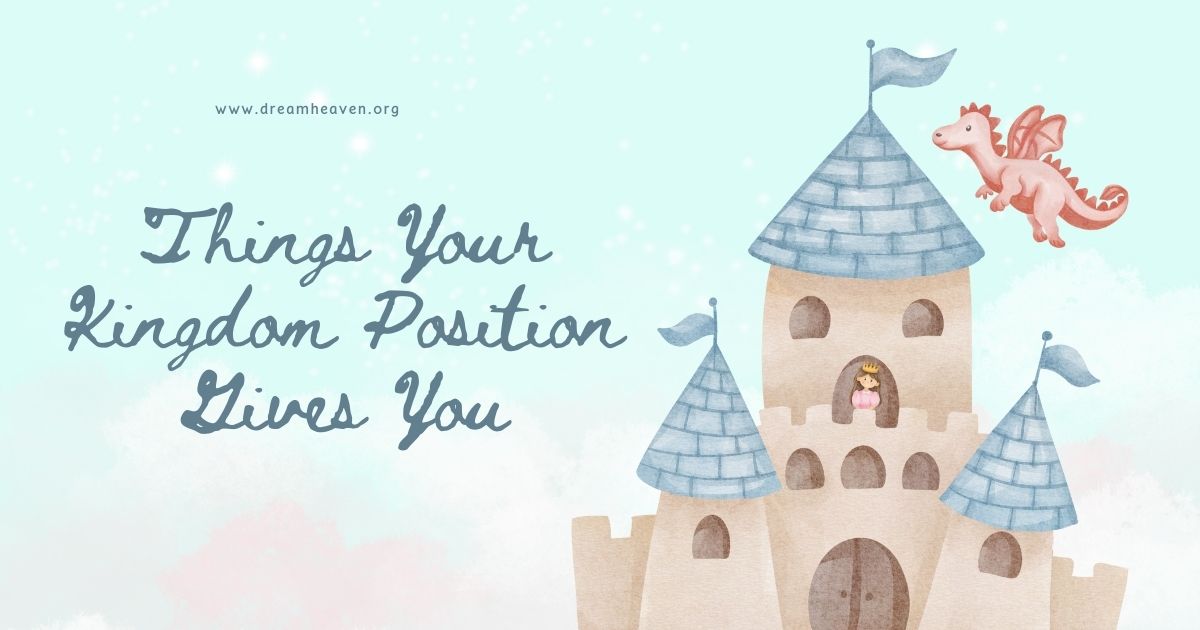The position you hold in a kingdom, whether historical or metaphorical, defines your influence, control, and opportunities. It is not just about wealth or political power, but also about the ability to shape decisions, command loyalty, and accumulate resources. Understanding the advantages that come with your position can provide a deeper insight into leadership, governance, and long-term prosperity. Whether you’re a ruler, a noble, or a strategic figure, the dynamics of power and wealth are deeply intertwined with your role in the kingdom. In this article, we explore what your kingdom position gives you in terms of power, wealth, and influence.
Political Influence
A kingdom position grants significant political influence, allowing you to steer the direction of the realm’s future. As a ruler or a key figure, your words have the power to shape laws, create alliances, and even start or prevent wars. The control over political decisions is perhaps the most obvious form of influence that comes with a prominent position.
Leaders in powerful positions have the ability to determine policies that affect not only their immediate territories but also neighboring lands. The decisions you make can impact trade, military movements, and the day-to-day lives of your subjects. The kingdom’s political landscape is heavily influenced by the vision and strength of the one in charge, making it an incredibly powerful resource to wield.
Authority over People
With your position, you also command a sense of authority over the people within your domain. This is not just about having the power to enforce laws; it’s about leading through example, motivating others, and earning loyalty. Your status in the kingdom comes with the responsibility of being a leader—someone who guides the masses through both prosperity and adversity.
A strong, respected leader can rally their people in times of crisis, leading them to victory or pulling them through hardships. This authority is built over time through actions, wisdom, and the ability to connect with the people, ensuring their support. The more loyal your subjects, the easier it becomes to govern effectively and maintain peace.
Wealth and Economic Control
Another significant advantage of holding a high position in a kingdom is the wealth it brings. Rulers, nobles, and influential figures have access to vast economic resources. This wealth often comes from various sources, including taxes, trade routes, and land ownership. As the ruler, your kingdom is a source of revenue, and you control the flow of wealth into and out of the realm.
Control over the kingdom’s economic systems can give you a massive advantage. From establishing lucrative trade routes to acquiring valuable commodities such as gold, spices, or other rare resources, the wealth of a kingdom is directly tied to the authority of its leader. Economic control also gives you the ability to fund military campaigns, build infrastructure, and ensure the kingdom’s stability.
Access to Trade Routes
One of the most coveted assets in a kingdom is the control over trade routes. Historically, kingdoms with control over major trade pathways could amass considerable wealth. Whether it’s land trade across continents or maritime routes, being in a strategic position means that the kingdom can profit from goods moving in and out of the region.
A kingdom’s access to these routes not only boosts its economy but also ensures its place in global or regional markets. By controlling trade, you can dictate terms, collect taxes from merchants, and leverage this control to build alliances with other kingdoms. This economic advantage can be a game-changer, making the holder of such positions rich and influential.
Control of Resources
Alongside trade, the ability to control valuable resources is another benefit of holding a powerful position in a kingdom. Natural resources such as fertile land, minerals, forests, or even water can contribute to a kingdom’s wealth. As the head of the kingdom, you decide how these resources are used and who has access to them.
For instance, controlling vast farmlands ensures food security for your kingdom, while owning mines can provide a steady supply of gold, iron, or other important materials. This control gives the ruler leverage over both their people and neighboring kingdoms, as resources are often a bargaining chip in political negotiations.
Taxation and Revenue
The wealth derived from taxation is an essential aspect of ruling a kingdom. Taxes collected from the kingdom’s population can fund various state activities, including defense, infrastructure, and the maintenance of public order. The ability to set tax rates and determine how revenue is allocated gives you immense power over the kingdom’s future.
As a ruler, you have the authority to tax different sectors—whether agricultural, commercial, or even luxury goods—enabling you to control the distribution of wealth. Effective taxation policies can ensure the kingdom’s prosperity, while poor management can lead to unrest and economic decline.
Strategic Military Power
Holding a powerful position in the kingdom also means that you have access to its military resources. A ruler or noble figure has the authority to command armies, form alliances, and defend or expand the kingdom’s borders. Military power is often a key factor in securing a kingdom’s position on the world stage.
The strategic use of military power can safeguard your wealth, resources, and influence. For instance, controlling a strong military can deter invasions, protect trade routes, and assert dominance over rival kingdoms. The ability to raise armies and engage in warfare also ensures that your kingdom remains secure from external threats, allowing it to flourish in peace and prosperity.
Cultural and Social Influence
Your position in a kingdom can also grant you the ability to shape its culture and social systems. Kings, queens, and other influential figures often dictate the values, traditions, and customs that are observed by the people. From art and architecture to education and religion, your influence can leave a lasting imprint on the kingdom’s identity.
By supporting certain cultural practices, promoting education, or patronizing the arts, you can shape the kingdom’s long-term legacy. This cultural influence not only elevates the kingdom’s status but also strengthens its internal unity, as a shared culture can unite the people under a common identity.
Long-term Legacy and Historical Impact
A powerful kingdom position doesn’t just offer benefits in the present—it also provides a chance to leave a lasting legacy. The decisions you make today will influence future generations, both within the kingdom and beyond. Whether it’s through monumental architecture, historical events, or the policies you implement, your influence shapes the future trajectory of the realm.
The impact of your leadership is often felt long after your reign ends. Kingdoms that prosper under wise rule are remembered in history for their contributions to civilization, and your position allows you to be a part of that historical narrative.
Conclusion
The position you hold within a kingdom is a powerful tool that grants you not only material wealth but also influence, authority, and the ability to shape the future. From controlling resources and wealth to dictating cultural practices and military strategies, your role allows you to command not just a kingdom, but a legacy. Whether in times of peace or war, those who hold positions of power in a kingdom are in the unique position to change the course of history.
Understanding the vast privileges and responsibilities that come with a kingdom position is key to maximizing its potential. It’s not just about wielding power, but using it wisely to ensure the prosperity of both the kingdom and its people.
FAQs
- How can I leverage my kingdom position for long-term prosperity?
Leveraging your position for long-term prosperity involves wise economic management, fostering strong alliances, and ensuring the well-being of your people. - What are the most critical resources to control in a kingdom?
Key resources include fertile land, minerals, water, and access to strategic trade routes. - How does military power impact a kingdom’s position?
Military power protects the kingdom’s borders, secures trade routes, and helps maintain dominance over rivals. - What role does cultural influence play in a kingdom’s success?
- Cultural influence unites the people, strengthens identity, and leaves a lasting legacy for future generations.
- Can a kingdom’s position change over time?
- Yes, a kingdom’s position can change due to political shifts, military victories, economic policies, and social changes.


[…] MBA is more than just a degree; it’s a transformative experience that equips experienced professionals with leadership skills, strategic insights, and a global perspective. Whether your […]
[…] today’s fast-paced world, where convenience and efficiency are everything, JustPress Pay has emerged as a game-changer in the payment solutions industry. Designed to […]
[…] Skhallhamer Manor Campaign is a masterclass in storytelling, atmosphere, and gameplay. Its blend of mystery, combat, and moral […]